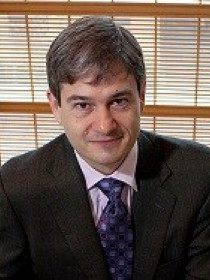
Stephen Ansolabehere
Connect with Stephen
About Stephen
Ansolabehere’s areas of expertise include elections, public opinion, media, and representation. He runs a large survey consortium, called the Cooperative Congressional Election Study, which conducts large-scale national sample surveys every year (since 2005). He also runs the Harvard Election Data Archive, an archive of precinct-level election data, merged into Census and geographic information systems. His research has focused on explanations of individual’s voting behavior in presidential and congressional elections, on the factors that determine and predict election results (especially the role of incumbency), on election administration (including registration, voting technology, and redistricting), on media and money in elections, on political advertising, and on public attitudes about energy and the environment. His research on representation concerns how people see their representatives and when and how people hold their elected representatives accountable for policy decisions and roll call votes. Ansolabehere is a consultant to the CBS Election Night Decision Desk. He has testified before Congress on matters concerning election administration, and has served as an expert witness in cases involving Redistricting and Voter Identification in 2011, 2012, and 2013.